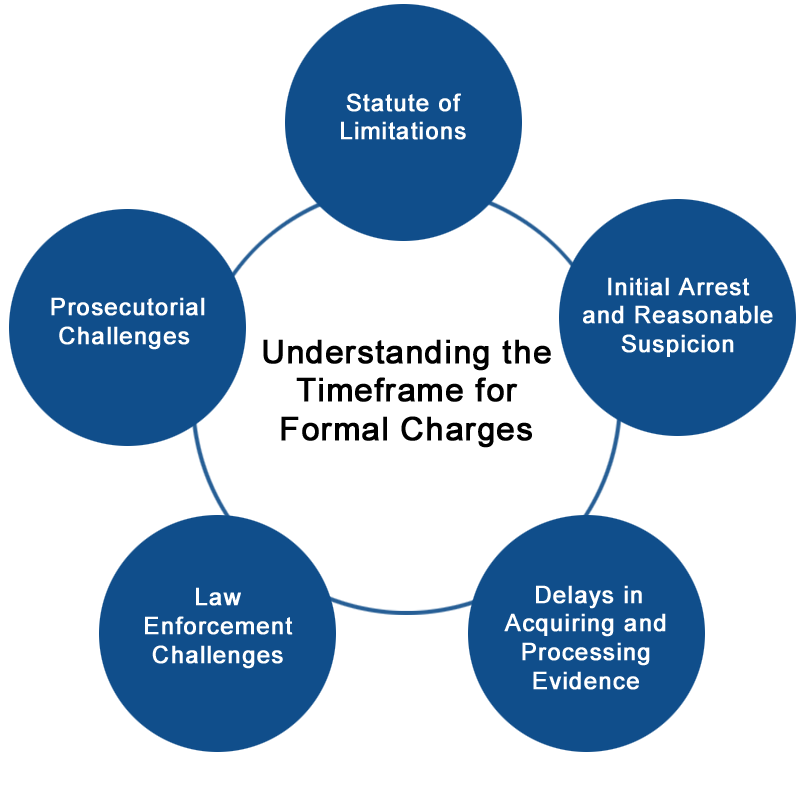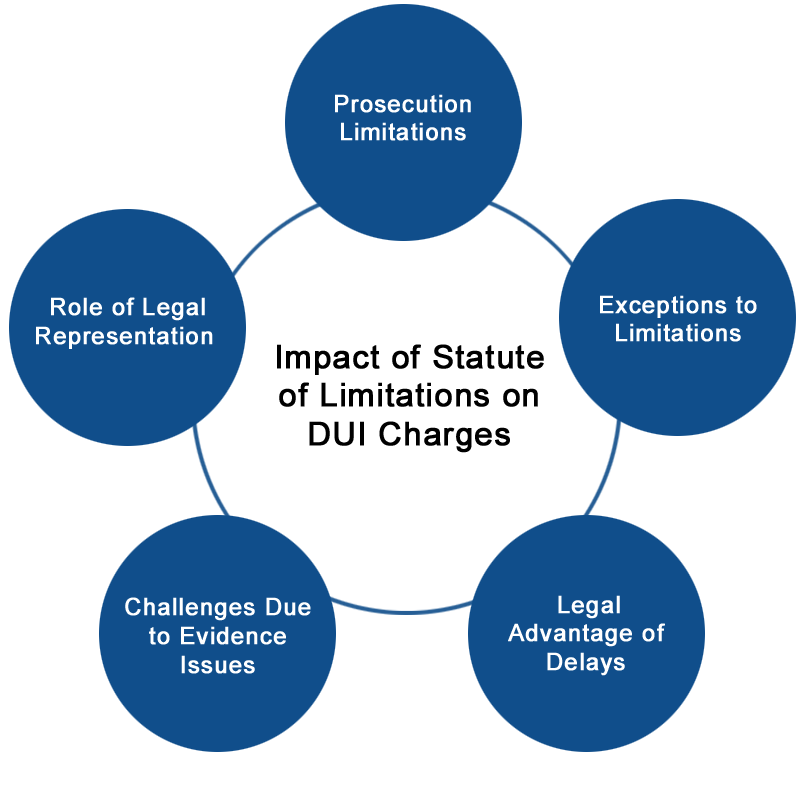Oklahoma Statute of Limitations for DUI, DWI, and APC

How Long Does the Police and Prosecution Have to Charge You With DUI, DWI, and APC in Oklahoma?
If you’ve been arrested for DUI (Driving Under the Influence), DWI (Driving While Intoxicated), or APC (Actual Physical Control) in the State of Oklahoma, but have not been formally charged, you are not off the hook. The arrest is only the first step in the process. And, as it’s based on the arresting officer’s reasonable suspicion or perceived probable cause, it doesn’t require the same burden of proof of formal charges.
And filing those charges is the second step. Sometimes, it doesn’t happen right away. In fact, in some cases, it may take weeks or even months for a formal charge to be filed. That’s because Oklahoma state law allows a three-year statute of limitations, giving prosecutors ample time to file charges before they are prohibited from pursuing the case further.
There are many reasons why there could be a delay between the initial incident and formal charges being filed. These include:
- Delays in acquiring and processing evidence: This includes footage from dashcams or bodycams, results of blood alcohol tests, eyewitness statements, medical and toxicology reports, or other evidence.
- Law enforcement issues: Internal debates regarding the legality of the traffic stop, the constitutionality of the arrest, and the validity of the breathalyzer results can cause delays in obtaining a search warrant for further evidence that prosecutors need to move forward. There may also be complications in cases where several jurisdictions are involved.
- Prosecutorial issues: A lack of evidence could hamper prosecutors from moving forward with charges, particularly when there is already a backlog of cases that need to be addressed.
Why Does the Statute of Limitations Exist?
The concept of a statute of limitations exists so that criminal cases do not drag on indefinitely, requiring the prosecution to file any charges promptly. This benefits the prosecution by ensuring that they pursue the case while evidence is still accounted for and memories are fresh. However, it also benefits the citizens by giving them an avenue to challenge the case against them and have charges reduced or dismissed if the prosecution violates the statute of limitations. This underscores why it is important to understand and assert your legal rights.
 Is the Statute of Limitations the Same as the Lookback Period?
Is the Statute of Limitations the Same as the Lookback Period?
While each of these concepts does set a certain expectation of timeliness to the legal process, they are very different in execution. The statute of limitations simply refers to the period following the arrest in which the prosecution must file charges, generally three years for DUI, DWI, and APC.
The Lookback Period, on the other hand, refers to the amount of time the prosecution can “look back” at a defendant’s criminal record to consider prior offenses. Oklahoma law sets this period at 10 years for DUI convictions, meaning any prior offenses further back than 10 years cannot be considered in determining penalties for a conviction. Under specific circumstances, that prior offense can potentially be expunged once it exceeds the lookback period.
Can I Still Be Prosecuted After the Statute Of Limitations Has Run Out?
For the most part, no. Three years after a DUI, DWI, or APC arrest, the prosecution loses the ability to press charges. That said, certain circumstances such as an injury or a death that resulted from the incident can lead to charges after the statute of limitations has run out. In either case, the best way to prevent charges is to secure the services of an attorney who can challenge the case against you.
How Can a Delayed DUI Charge Work in My Favor?
There are several ways that a delay between arrest and formal filing of charges can work in your favor. If the delay lasts long enough, exceeding the statute of limitations, your case can be dismissed outright. And even before the statute of limitations runs out, a delay caused by issues with evidence, mistakes by law enforcement, or errors in the lab can help you see your charges dismissed. In the interim, it allows you to work with the attorneys at the Edge Law Firm to see your charges dismissed, acquitted, or reduced to an offense that won’t blemish your criminal record.
 Having An Attorney Investigate the Situation
Having An Attorney Investigate the Situation
If an attorney gets involved early in a DUI, DWI, or APC investigation in Oklahoma, they can potentially prevent charges from being filed by challenging the evidence, pointing out procedural errors, or negotiating with the prosecution. This proactive approach can lead to the dismissal of charges, reduced penalties, or even avoiding criminal charges altogether. Early legal intervention helps protect your rights and often results in a more favorable outcome, including the possibility of no arrest or criminal record.
How the Edge Law Firm Can Help
The attorneys at the Edge Law Firm have a proven record of seeing charges reduced, dismissed, or acquitted. We wrote the book on it. Judges and attorneys across Oklahoma refer to our book “Oklahoma DUI Defense” in interpreting the law, and we also offer our “Oklahoma DUI Survival Guide” a free guide to navigating the complexities of a DUI charge.
But the knowledge we bring to the table is only half of the battle. Securing your freedom and the best possible outcome requires in-depth knowledge of your case, helping us build the foundation of your defense. It all starts with a free, no-obligation case evaluation, where we will begin the process of tracking down evidence in your favor, finding flaws in the evidence against you, and analyzing weaknesses in the prosecution’s case.
If we can’t convince the prosecution to stand down at the negotiating table, we’ll expose the flaws in their case in court. And we will secure the best possible outcome for you, just as we have for countless clients just like you. Contact us today for a consultation, and let the Edge Law Firm get to work fighting for your freedom.
Please submit our secure contact form below:
